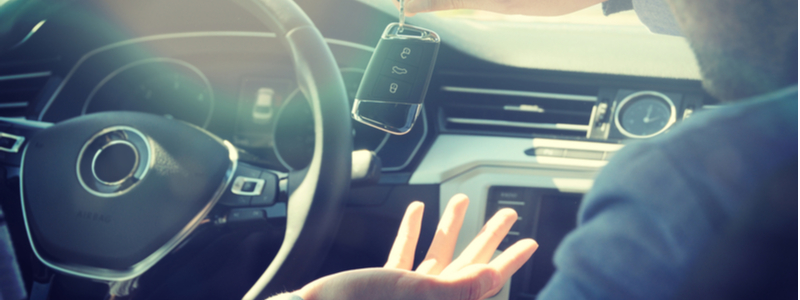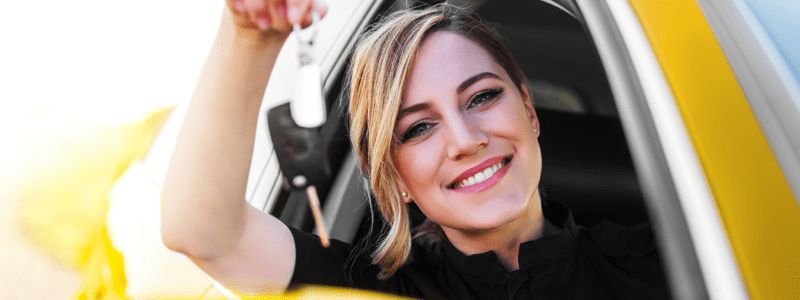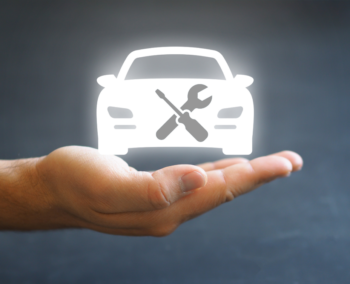
If you’re looking to spread the cost of financing your car and you want to own it at the end of your agreement, hire purchase is an option to consider.
What is hire purchase?
A hire purchase agreement (HP) is a type of borrowing and one way to finance a new or used car. Unlike a typical loan, you don’t own the goods (in this case, the car) until you’ve paid in full – so essentially, you hire it while you pay it off.
A hire purchase agreement usually involves an initial deposit – although we offer £0 deposit options – followed by an agreed term of monthly payments until the last payment is made and you own the car.
How does hire purchase work?
Hire purchase spreads the cost of the vehicle you want across a series of monthly payments. Once you’ve made the final payment, the car is yours.

The deposit
So, you’ve chosen the car you want, and now you’ll have an idea of how much you need to borrow. The first step then is to put down a deposit. The deposit on a hire purchase agreement is usually low – typically around 10% of the car’s price. However, no-deposit options are also available.
The bigger the deposit you put down, the lower your monthly payments will be, as you’ll reduce the overall interest and the balance due.
Monthly payments
After paying the deposit (if you choose to), the remaining balance and interest are split into a series of fixed monthly instalments.
The term of the agreement usually lasts between two and five years. The longer the term, the less you’ll pay every month. However, the amount of interest you’ll pay overall will be greater.
The interest rate is always fixed, no matter what Bank of England rates do, so you’ll always know how much you need to pay every month and can budget accordingly.
Owning the car
Once all the payments have been made, there may be a small option to purchase fee due at the end of your agreement. This can be as little as £1 and up to a few hundred pounds – depending on the vehicle you have. So, it’s worth asking about it upfront.
After this, the car is then signed over to you and you become the legal owner.
Pros and cons of hire purchase
There are several pros and cons to taking out a hire purchase agreement.

Pros
- Spread the cost of the car over several years to suit your budget and circumstances
- Relatively low or no deposit needed
- Option for early repayment
- Fixed interest rates for the life of the agreement, so you know what you’ll be paying every month
- Fewer restrictions such as mileage
- Easy application process
- Own the car once all the payments have been made
Cons
- Failure to make payment means the lender could repossess the car
- Monthly payments are usually higher than for PCP or leasing deals
- A lower deposit means higher monthly payments and a longer-term loan
- An expensive way of borrowing if you’re looking for a short-term agreement
Read more about the pros and cons of hire purchase.
Used vs new car hire purchase
Hire purchase agreements are available for both new and used cars, so it’s really a matter of personal preference as to which you choose.
If you’re opting to purchase a new car on hire purchase, it could mean you could afford a newer model with cleaner emissions and more modern technology.
With a new car, there are often more deals when it comes to car finance, such as deposit or finance contributions. However, new cars also have higher prices, so you’d be looking at higher monthly repayments unless you had a larger deposit saved up.
On the other hand, buying a used or nearly-new car through hire purchase may mean lower monthly payments.
But there’s often a more limited choice when it comes to finding the car you want. It’s also wise to consider the increased repair costs that may come with owning an older vehicle.
How to get the best hire purchase deal
There are many hire purchase deals out there; from ones with £0 deposit to ones with low interest rates.

Usually, the best offers come from the dealership you’re going to purchase with.
Remember, the best interest rates are often available to those with a better credit rating, so it’s worth putting some time into looking at your credit report before you start to apply for finance.
Get advice on how to finance a car with bad credit.
To help ensure you get the best deal, make sure you’re asking these questions:
- What is the APR on the deal?
- What is the total amount repayable by the end of the agreement?
- Are there any additional fees?
- What is the total cost of credit?

Rates from 12.9% APR. Representative APR 18.9% We are a credit broker, not a lender.
*a hard search will be performed if you decide to proceed
Other options
There are many other ways to buy a car, such as saving up and purchasing outright. Alternative finance options to hire purchase include:
Personal Contract Purchase (PCP)
PCP also allows you to spread payments for your car over a long period of time (usually two to four years). However, while you still make monthly repayments when the term ends, you can either make a lump sum payment to own the car outright or use any equity you have in the deal to put a deposit down on a new car. Or you can hand the car back.
Read: What is personal contract purchase and how does it work?
Personal Contract Hire (PCH)
Also known as leasing, PCH works like a car rental over a longer period. You pay an initial amount and monthly payments thereafter to lease the car for an agreed amount of time. When the contract comes to an end, you can hand the car back or lease another.
Personal loan
A personal loan is where you borrow an amount of money from a lender (usually a bank or building society) and pay it back over a fixed amount of time along with interest. The sum is transferred into your bank, and you can then effectively treat it as if it were your own cash to purchase a car outright.
How are hire purchase payments calculated?
Simply put, hire purchase payments are calculated by splitting the cost of the car, plus interest, over a deposit and a series of fixed monthly payments.
The monthly payment is dependent on the amount of deposit you put down, the length of the agreement term and the interest rate on your deal.
Let’s look at some examples:
Car cost: £10,000
Deposit: £0
Amount of credit: £10,000
Length of term: 60 months
APR: 12.9%
Total amount payable: £11,290
Monthly repayment: £188.16
So, to break that down:
Car cost: How much the car costs.
Deposit: How much you pay upfront
Amount of credit: How much you’re borrowing (the cost of the vehicle minus any deposit)
Length of term: How long your car finance agreement lasts
APR: The percentage of interest applied to the money borrowed
Total amount payable: How much, including interest, you’ll repay over the course of your car finance agreement
Monthly repayment: How much you’ll pay each month (in this case it’s £11,290 spread over 60 months)
When will I own the car?
With hire purchase, the loan is secured against that car. So, until the agreement is paid off in full, the car remains the property of the finance company.


Once you’ve finished paying all the monthly instalments, there may be a small fee to complete the agreement.
It’s often known as an ‘option to purchase’ fee, and can be as little as £1 depending on the car and the terms. Once this fee is paid, you officially become the legal owner of the car.
Additional costs
When considering the affordability of your new car on hire purchase, it’s important to think of other costs that are involved, as well as your monthly repayment.
These include the car tax, insurance, fuel, MOT, and repair costs.
Of course, car tax and fuel consumption can be cheaper on newer cars so that you may find a higher spec vehicle more cost-effective over the long run.
However, considering and budgeting for these costs ahead of time could save you money over the years.
Cancellations
There are many reasons people might want to cancel their hire purchase deal early.
Your financial circumstances may have changed, making repayments unaffordable or a struggle to meet. Maybe you no longer need a car or want to get a new car sooner than anticipated.
Whatever the reason, it’s possible to cancel your HP deal earlier on, but usually, you must have repaid 50% of the total finance amount first.
If you haven’t reached the halfway point of your agreement, it doesn’t mean you can’t cancel. However, you’ll have to make up the difference before you terminate the agreement.
To cancel the agreement, you need to inform the lender in writing and return the car in a good condition.
By cancelling, it may appear on your credit report, but it would be unlikely to affect your score or hamper your ability to borrow in the future.
Read: What is voluntary termination of car finance and can you end an agreement early?
Risks of hire purchase
The main risk with hire purchase is that it’s a secured loan. Meaning that if your financial circumstances change for any reason, and you can’t keep up with your repayments, the car can be repossessed.
Until the final payment and any option to purchase fee has been settled, you don’t own the car.
Any late or missed payments on your hire purchase agreement will also be flagged on your credit report and could affect your credit score and chances of borrowing in the future too.
Finally, even though you don’t legally own the vehicle until the agreement comes to an end, the effects of depreciation and maintenance costs still all lie with you.
As hire purchase agreements tend to run over a longer period, it may mean there’s more risk of depreciation even before the car is fully yours.
Use our car finance eligibility tool to discover whether you’re likely to be accepted for finance.







Get a quote in minutes ✅
– with zero impact on your credit score!*
Get Started






Rates from 12.9% APR. Representative APR 18.9% We are a credit broker, not a lender.
*a hard search will be performed if you decide to proceed













